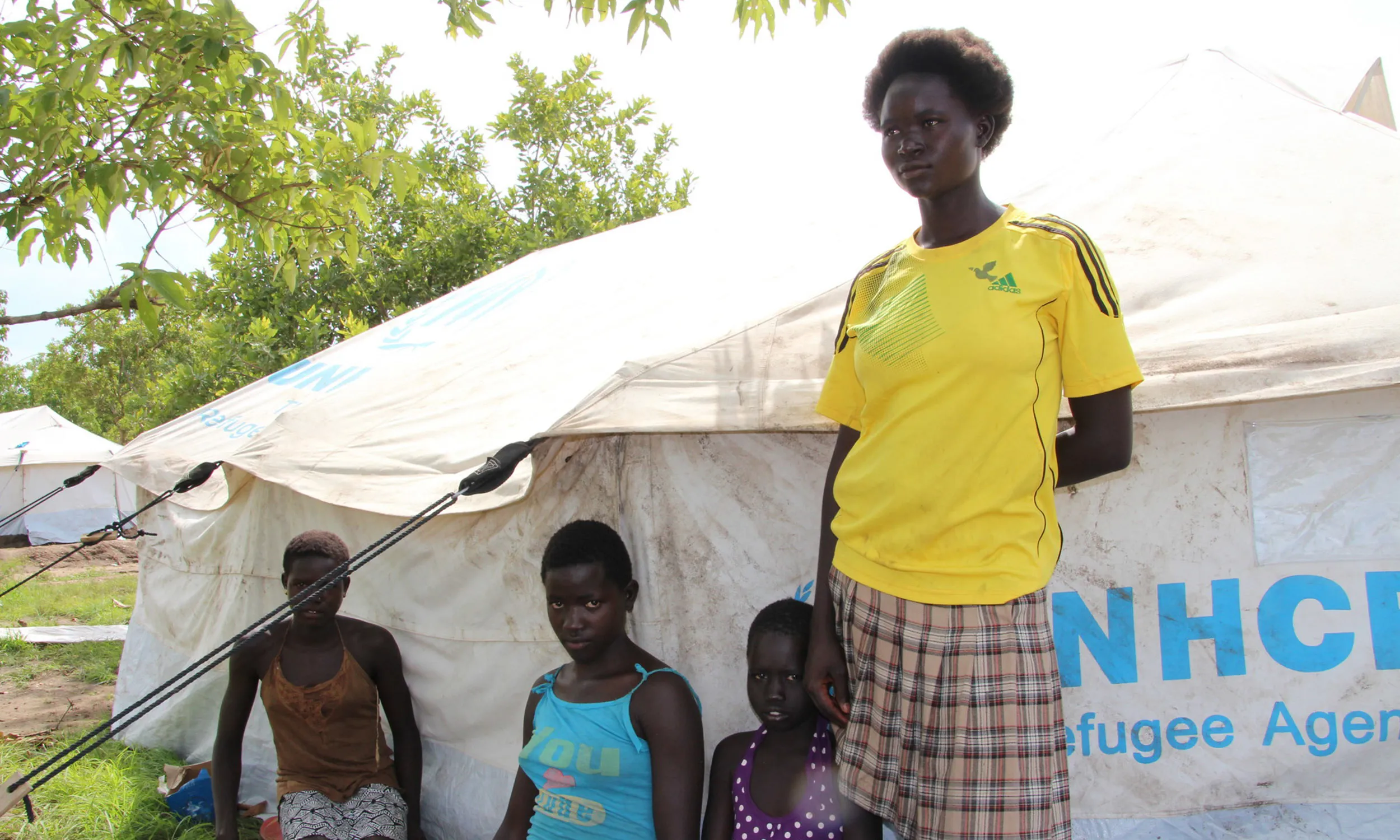“I miss my parents but I’m glad we left the people with the guns behind,” she says.
At Imvepi, however, she still is not safe. Her family was connected to government forces in South Sudan, which poses a threat to her and her sisters’ lives. Shortly after their arrival at Imvepi, Jane and her sisters were attacked in the middle of the night in the refugee settlement by a group of about 15 men.
They told us we should have just let them kill us.
“They shouted that they wanted to kill us and that this would be the last time for us to see the light,” Jane says. “And then they touched us… .”
It was the third time they’d been attacked since arriving. They received little empathy when they told others in the camp about the incident.
“They told us we should have just let them kill us,” she says.

